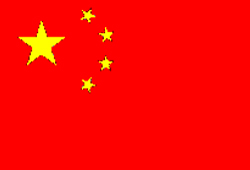Chinese or the Sinitic language(s) (simplified Chinese: 汉语; traditional Chinese: 漢語; pinyin: Hànyǔ; simplified Chinese: 华语; traditional Chinese: 華語; pinyin: Huáyǔ; simplified Chinese: 中国话; traditional Chinese: 中國話; pinyin: Zhōngguóhuà; or Chinese: 中文; pinyin: Zhōngwén) is a language family consisting of languages mutually unintelligible to varying degrees. Originally the indigenous languages spoken by the Han Chinese in China, it forms one of the two branches of Sino-Tibetan family of languages. About one-fifth of the world’s population, or over one billion people, speak some form of Chinese as their native language.
The standardized form of spoken Chinese is Standard Mandarin (Putonghua / Guoyu / Huayu), based on the Beijing dialect, which is part of a larger group of North-Eastern and South-Western dialects, often taken as a separate language (see Mandarin Chinese for more), this language can be referred to as 官话 Guānhuà or 北方话 Běifānghuà in Chinese. Standard Mandarin is the official language of the People's Republic of China (PRC) and the Republic of China (ROC), as well as one of four official languages of Singapore. Chinese—de facto, Standard Mandarin—is one of the six official languages of the United Nations.
|
|
 |